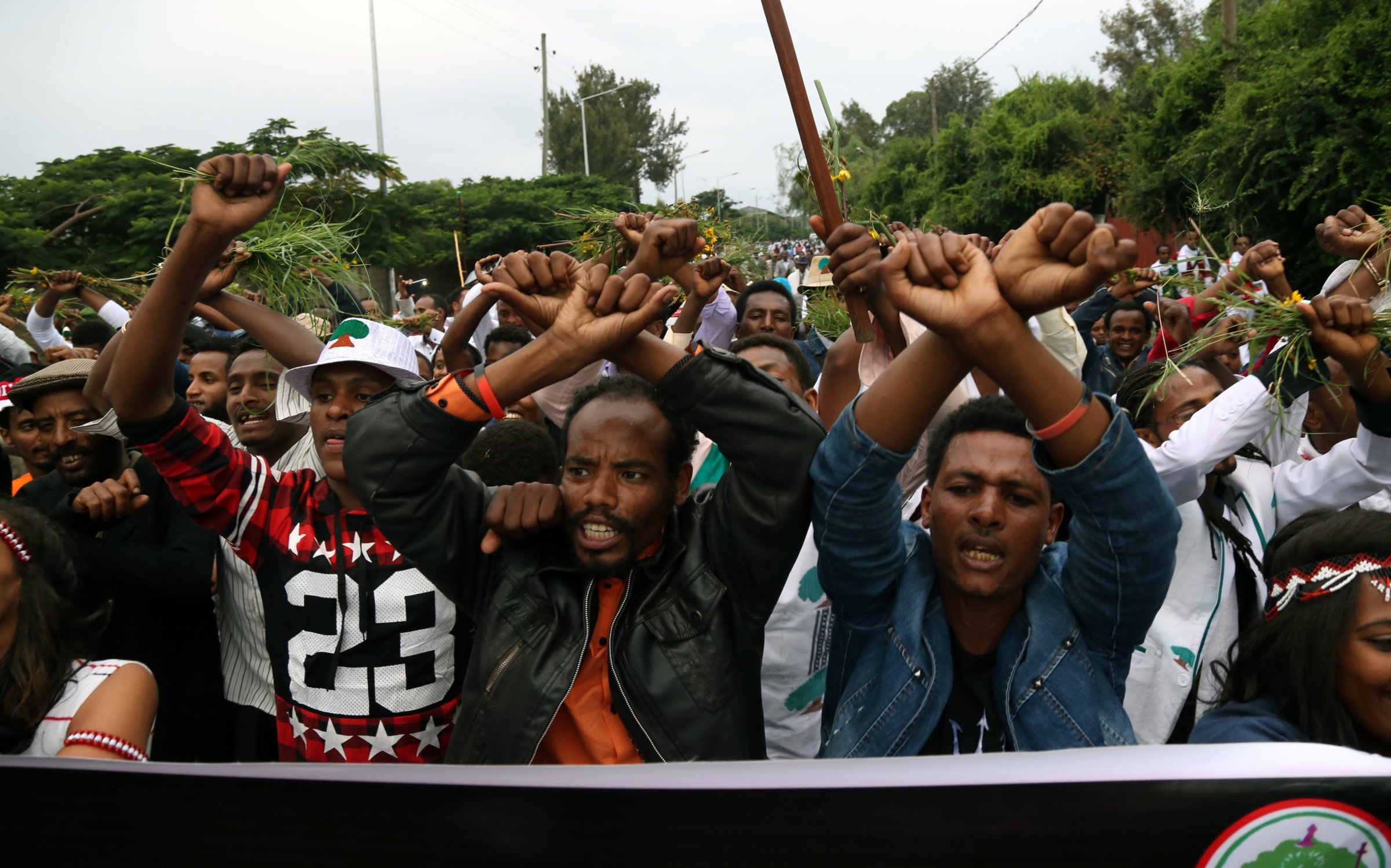
Authorities in Ethiopia have detained more than 1,600 people under state-of-emergency measures, which were imposed on Oct. 9 in the wake of massive anti-government protests.
The state of emergency grants authorities the power to detain people without an arrest warrant until the measures expire in six months, the BBC reported on Friday.
According to state-affiliated media FBC, 1,683 arrests had been made in the Oromia and Amhara regions of Ethiopia, which have seen large-scale political dissent. An additional 1,000 people were arrested on Monday near the capital, Addis Ababa.
FBC reported that the detainees were “suspects in the recent violence,” and that authorities had confiscated a large number of looted weapons.
Ethiopia’s sometimes-deadly spate of political unrest began last November when people in Oromia demonstrated against government plans to expand Addis Ababa into their region. The plan was abandoned but anti-government protests have continued.
On Oct. 3, 55 people were crushed to death in a stampede after a protest developed at an Oromo religious festival. The government blamed protesters for the tragedy but activists say that heavy-handed security caused panic — a state of emergency was declared the following week.
At least 500 people have died in clashes with security forces over the past 11 months, according to New York-based Human Rights Watch, which has accused Ethiopia of suppressing political dissent in the past.
More Must-Reads from TIME
- Cybersecurity Experts Are Sounding the Alarm on DOGE
- Meet the 2025 Women of the Year
- The Harsh Truth About Disability Inclusion
- Why Do More Young Adults Have Cancer?
- Colman Domingo Leads With Radical Love
- How to Get Better at Doing Things Alone
- Michelle Zauner Stares Down the Darkness
Contact us at letters@time.com